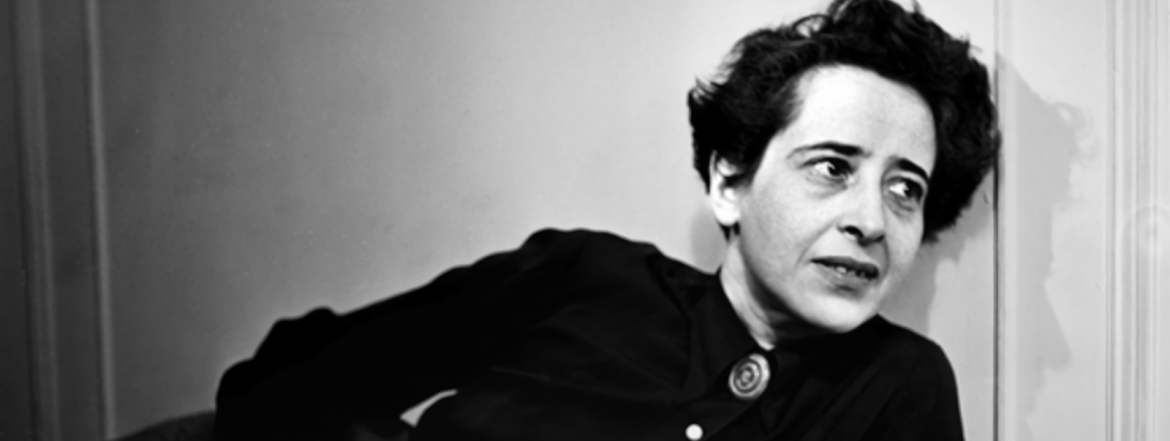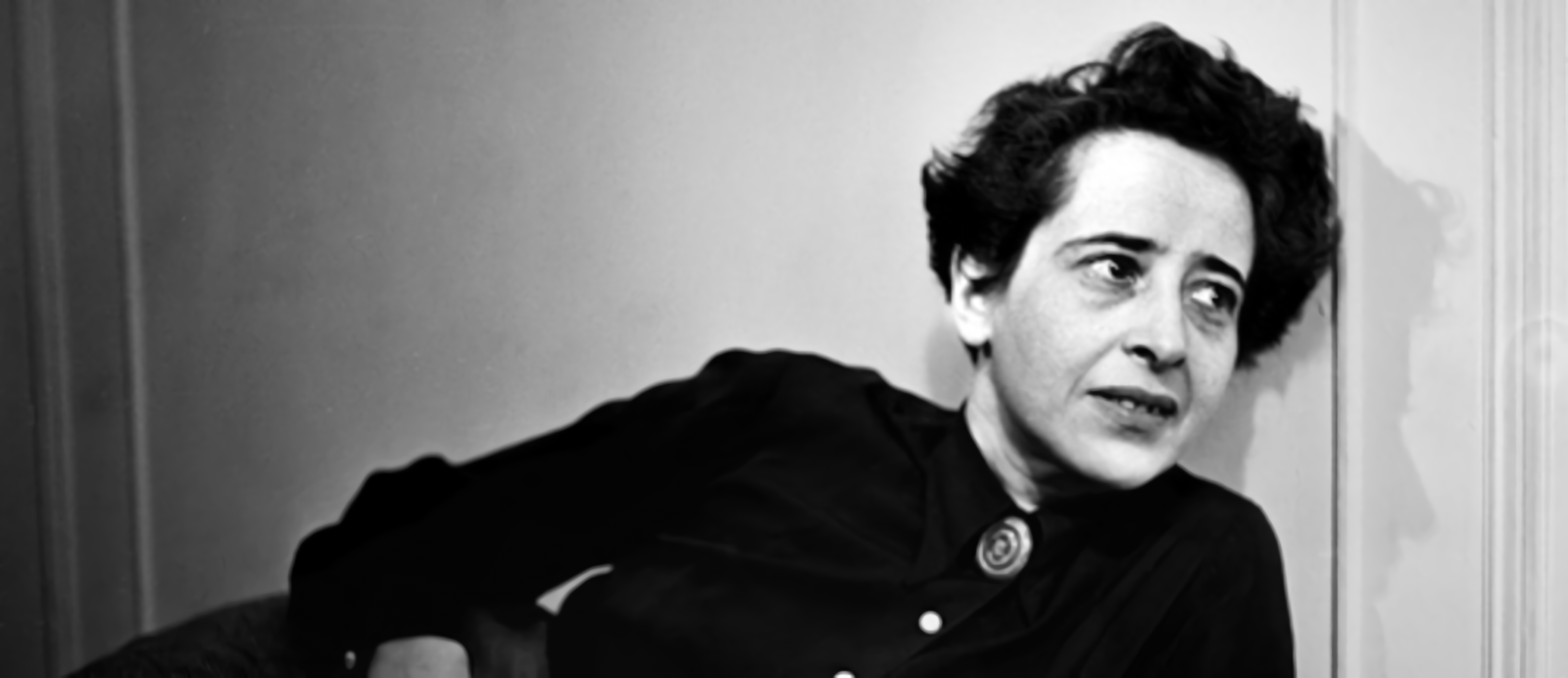Refuge at Risk: Concepts, Infrastructures, Futures
Feb 16–Feb 17, 2023
University of California Humanities Research Institute, UC Irvine
Refuge at Risk: Concepts, Infrastructures, Futures
In 1943, Hannah Arendt, who had arrived in New York two years earlier, published “We Refugees” in a small Jewish journal called Menorah. Merging satire, memoir, and manifesto, Arendt’s essay both railed against the term “refugee” and reclaimed it for a renewed politics led by the vanguard of the displaced. Her own emigration was partly enabled by scholar rescue efforts that continue today through the work of organizations such as the Scholars at Risk Network, the Institute for International Education Scholar Rescue Fund, and the New University in Exile Consortium. Eighty years after the publication of “We Refugees,” this UCHRI conference considers the ongoing relevance of Arendt to the heightened stakes of refuge today, gathers together at-risk scholars and their hosts and allies from UC campuses to discuss first principles, and takes stock of humanistic approaches to refuge across the University of California.
February 16-17, 2023
University of California Humanities Research Institute (UCHRI)
University of California, Irvine
Humanities Instructional Building 135
Article about conference, LA Times, 2.18.23
Organizers
Julia Lupton (UCHRI), Interim Director
Jane O. Newman (UC Irvine), Chair, UC Committee for Scholars at Risk
Ignacio López-Calvo (UC Merced), Director, Center for the Humanities
Conference Biographies
Participating Organizations
Scholars at Risk Network
Global Academy, Middle East Studies Association
Article 26 Backpack
The Critical Refugee Studies Collective
Glocally Connected — Human Migration Institute
Thursday, February 16 | Infrastructures of Refuge: An Institutional Accounting
1:00-2:30 pm: Closed sessions for Scholars at Risk liaisons, hosted scholars, and UC graduate students and post-docs
- Hosted at-risk scholars and campus liaisons and allies of Scholars at Risk. Group One moderated by Jane O. Newman (UC Irvine), and Alfred Babo (Fairfield University), HG 4000; Group Two moderated by Christina Lux (UC Merced) and Hashmat Nardipor (UC Irvine), HG 4100
- Graduate students and post-docs working on Jewish studies, refugee studies, and related topics, moderated by Dr. Carrie Perkins, ACLS Emerging Voices Postdoctoral Fellow, HG 4200
3:00-4:00 pm: Refuge at Risk: Keynote Conversation with Anne McCall
Humanities Instructional Building 135
In-person and remote
Julia Lupton (UCHRI), welcome; Jane O. Newman (UC Irvine), moderator; with special guest Alfred Babo (Fairfield University)
Anne McCall is Chair of the United States section of the Scholars at Risk Network and Provost of Xavier University of Louisiana. In dialogue with Jane O. Newman, Anne McCall will share the history and aims of the network and the principles that underlie the work that SAR aims to accomplish. Professor Babo will share his experiences as an at-risk scholar alumnus and comment on best practices for how institutions and scholars can work together.
Further reading: Alfred Babo, 38 Paradise Road
4:00-4:15 pm: Coffee break
4:15-6:00 pm: Initiatives for Refuge across the UC
Humanities Instructional Building 135
In-person only
Many UC campuses have taken up the challenge of hosting endangered scholars. What principles of engagement emerge from the difficult work of brokering these fragile arrangements out of limited resources? How do hosted scholars enrich the institutions and communities where they sojourn, and what are some strategies for welcoming scholars into the lives of the campuses? What are the needs, perspectives, and contributions of displaced students in the University of California? How can we create meaningful opportunities for networking and research exchange among hosted scholars, students, hosts, allies, and the larger academic community around the UC system?
Kum-Kum Bhavnani, Assoc. Vice Chancellor for Global Engagement, UC Santa Barbara, moderator
Cameroon | UC Santa Barbara: Elisabeth Ayuk-Etang, SAR scholar and Kum-Kum Bhavnani
Afghanistan | UC Irvine: Hashmat Nadirpor, SAR scholar, and David Kaye, co-directors, Afghanistan Human Rights Project
Afghanistan | UC Merced: Shiraz Noorani, SAR scholar, with Ignacio López-Calvo and Christina Lux
Afghanistan | UC Riverside: Amena Sadat, SAR scholar, with Selin Yildiz Nielsen
Ukraine and Afghanistan | UC San Diego: Ihor Lylo and Marzia Khalil, SAR scholars, with Nancy Postero
Article 26 Backpack Project | UC Davis: Keith David Watenpaugh, Dheera Dusanapudi ’25 and Emma Tolliver ’23
6:15-7:30 pm: Dinner reception and music, “Refugee Songs,” featuring Bahman Sarram, Reverend Stickman, and TJ Moss; introduced by Anita Casavantes Bradford (UC Irvine). Humanities Instructional Building 55 (Philosophy Seminar Room).
Friday, February 17th | “We Humanists”: Histories, Concepts, and Collaboration in Refugee Scholarship
Humanities Instructional Building 135 and remote
9:30-10:00 am | Light breakfast
10:00-11:30 am | “We Refugees:” Hannah Arendt 80 Years Later
Hannah Arendt opens her 1943 essay “We Refugees” by refusing the very term: “In the first place, we don’t like to be called ‘refugees.’ We ourselves call each other ‘newcomers’ or ‘immigrants.’” Rejecting rescue narratives and the demand to assimilate, Arendt concludes by reclaiming the word “refugee” within an emboldened politics of truth-telling. What role has Arendt’s essay played in framing refugee studies, and what are the affordances and limitations of her perspective in evolving discourses and new actualities?
Kai Evers (UC Irvine), moderator
Jane O. Newman (UC Irvine), Scholar Rescue: A Very Brief History
Debarati Sanyal (UC Berkeley), “‘The dark background of mere givenness’: Arendt, Refugees, and Political Subjectivity
Keith David Watenpaugh (UC Davis), From “Among the Ruins” to “We Refugees” and “The Land of Sad Oranges” Yesayan, Arendt, and Kafani — Exile and the Framing of Refugee Diaspora
Further reading: Hannah Arendt, We Refugees (1943)
11:30 am-1:00 pm | Lunch break
1:00-2:30 pm | Collaborative Research in Critical Refugee Studies
Critical Refugee Studies mounts a humanistic approach to forced migration by centering refugee stories and experiences, rejecting narratives that disavow the role of host countries in the causes of dispossession and displacement, and documenting the world-repairing role of culture, memory, and imagination in the difficult work of resettlement. This panel features two projects that demonstrate the power of working across campuses to support research on refuge.
Anita Casavantes Bradford (UC Irvine), moderator
The Critical Refugee Studies Collective: Yến Lê Espiritu (UC San Diego), Ma Vang (UC Merced), and Victor Bascara (UC Los Angeles)
Queer and Trans Transnational Refugee Storytelling: Debanuj DasGupta (UC Santa Barbara) and Jeanne Scheper (UC Irvine)
2:30-3:00 pm | Coffee break
3:00-4:00 pm | Refuge, in Words: Comparing Religious Legacies
Hindus, Jains, and Buddhists take refuge in dharma (righteousness, moral duty), committing themselves to a path of wisdom and compassion. The Bible frequently evokes God as a refuge who protects those who are embattled, exiled, or oppressed. In Islamic texts, hijrah (seeking refuge) was first applied to Muhammad when he was forced to flee to Medina. The word refugee first entered the English language from French, to describe the Huguenots leaving France in response to religious persecution. How might concepts with long histories and multiple genealogies provide ideational infrastructure for contemporary scholarship, art, and thought around refuge today?
Elizabeth Allen (UC Irvine), moderator
Camilo Gómez-Rivas (UC Santa Cruz), Refugees and Sanctuary in the Pre-modern Islamic West
Diego Pirillo (UC Berkeley), Religious Refugees in Post-Reformation Europe
Refuge in Words and Images
Explore UC projects around refuge featured in our slide deck, on view during lunch and coffee breaks. We will also post the research profiles of SAR scholars as well as slides featuring the work and perspectives of other presenters.
Conference Goals
- Explore the legacy of Hannah Arendt and the German-Jewish refugee experience in refugee scholarship
- Map the concept of refuge in global religious traditions
- Articulate first principles for hosting endangered scholars and conducting humanistic scholarship and collaborative research on forced migration
- Connect people across the UC system and beyond interested in hosting refugee scholars or conducting engaged scholarship with, for, and as displaced people(s)
- Create networking and research exchange opportunities for hosted scholars across the UC
- Determine next steps for systemwide collaborations
This event is made possible by the Andrew W. Mellon Foundation (“Infrastructure of Inquiry: Horizons of the Humanities”) and a generous gift from the Koret Foundation.


